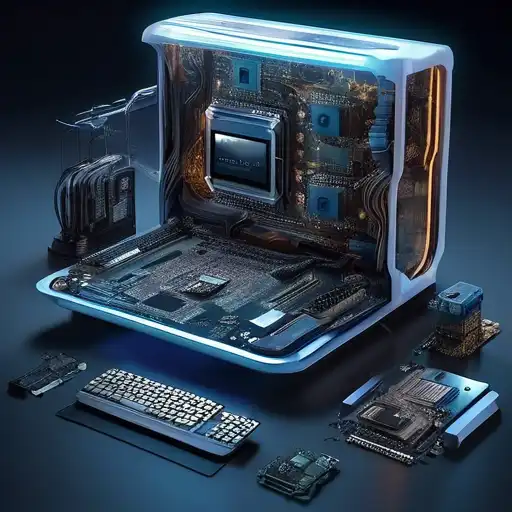Introduction to the Evolution of Hardware
The hardware industry is at a pivotal point, with advancements happening at an unprecedented pace. From quantum computing to biodegradable electronics, the future of hardware is not just about speed and efficiency but also sustainability and integration. This article delves into what's next in the realm of hardware technology, offering insights into the innovations that are set to redefine our digital and physical worlds.
Quantum Computing: The Game Changer
Quantum computing stands out as one of the most anticipated advancements in hardware technology. Unlike traditional computers that use bits, quantum computers use qubits, allowing them to solve complex problems in seconds that would take years for conventional computers. Companies like IBM and Google are leading the charge, making quantum computing more accessible and practical for various industries.
Biodegradable Electronics: A Step Towards Sustainability
As the world becomes more environmentally conscious, the demand for sustainable hardware solutions is growing. Biodegradable electronics, made from organic materials that can decompose naturally, are emerging as a viable option. This innovation not only reduces electronic waste but also opens up new possibilities for medical implants and disposable gadgets.
The Rise of Neuromorphic Hardware
Neuromorphic hardware, designed to mimic the human brain's structure and functionality, is another area of rapid development. This technology promises to revolutionize artificial intelligence by enabling machines to process information more efficiently and with lower energy consumption. Intel's Loihi chip is a prime example of how neuromorphic hardware is paving the way for smarter, more adaptive computing systems.
Integration of Hardware and AI
The integration of hardware and artificial intelligence is creating systems that are not only faster but also capable of learning and adapting. From self-optimizing networks to AI-driven design processes, this synergy is accelerating innovation across all sectors. The future will see hardware that can predict failures, optimize performance in real-time, and even repair itself.
Conclusion: A Future Full of Possibilities
The future of hardware is bright, with technologies like quantum computing, biodegradable electronics, neuromorphic hardware, and AI integration leading the way. These innovations promise to bring about a new era of efficiency, sustainability, and intelligence in computing. As we stand on the brink of these advancements, one thing is clear: the hardware of tomorrow will be vastly different from what we know today.
For more insights into the latest in technology, check out our articles on the future of AI and sustainable technology.
